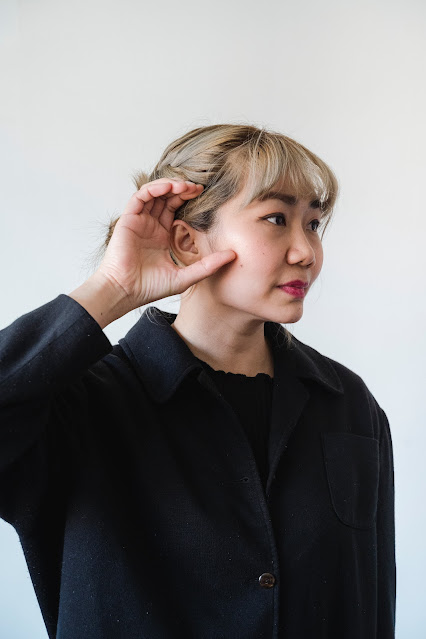Millions of individuals throughout the world, or 10% of adults in the United States, suffer from tinnitus, a condition that is frequently described as a constant ringing or buzzing in the ears. Finding effective therapies for tinnitus has proven to be difficult, although it can be brought on by a variety of causes, including exposure to loud noises, aging-related hearing loss, or underlying medical conditions. Many people have looked for alternate methods as a result, including dietary supplements such as Tinnitus911. In this thorough overview, we examine the science of tinnitus supplements, looking at their potential advantages, essential components, and the level of scientific inquiry at the time.
Understanding Tinnitus: A Persistent Ringing in the Ears
It’s crucial to comprehend tinnitus before delving into the science behind tinnitus supplements. When there is no external sound source present, tinnitus is defined by the perception of noise in the ears. This sound can be ringing, buzzing, hissing, or even roaring, among other variations. It can be continuous or sporadic and has a big impact on a person’s quality of life by disrupting their sleep, making them anxious, and making it difficult for them to concentrate.
Tinnitus can have several underlying causes, including:
Noise-Induced Hearing Loss: Tinnitus can result from prolonged exposure to loud noises, such as those made by equipment or loud music, which can harm the sensitive hair cells in the inner ear.
Age-Related Hearing Loss: Tinnitus can be exacerbated by progressive hearing loss that may occur as people age.
Earwax Blockage: An accumulation of earwax can cause pressure changes in the ear canal, leading to tinnitus.
Medical Conditions: Certain medical conditions, such as Meniere’s disease, high blood pressure, or temporomandibular joint (TMJ) disorders, can be associated with tinnitus.
The Role of Supplements in Tinnitus Management
While there is no recognized treatment for tinnitus, many people look for ways to cope with its symptoms. This has prompted the investigation of different supplements and organic treatments that claim to reduce tinnitus or the discomfort it causes. Understanding the probable mechanisms of action of these supplements and the research backing their use are two important aspects of the complicated science underpinning tinnitus supplements.
Common Ingredients in Tinnitus Supplements
Tinnitus supplements frequently contain several important components. These components are thought to address several elements of tinnitus, such as enhancing blood flow, decreasing inflammation, and safeguarding the auditory system. The following substances are notable:
Ginkgo Biloba: An herbal extract called ginkgo biloba is well known for its capacity to improve blood circulation. Some people with tinnitus think that increased blood flow to the inner ear helps lessen symptoms.
Zinc: The immune system and wound healing are two biological processes that are impacted by the mineral zinc. According to several sources, those who have tinnitus, especially those who have low zinc levels, may benefit from taking zinc supplements.
Magnesium: Muscle contraction and neuron function both depend on magnesium. A lack of magnesium may contribute to tinnitus, according to research, prompting some people to consider magnesium supplements as a potential treatment.
Vitamin B12: Red blood cell formation and the health of the nerves both depend on vitamin B12. This vitamin’s deficiencies have been connected to neurological symptoms like tinnitus.
Coenzyme Q10 (CoQ10): CoQ10 is an antioxidant that supports cellular energy production. Some people think that taking CoQ10 supplements will lessen the symptoms of tinnitus and protect the auditory system from oxidative stress.
Melatonin: A hormone called melatonin controls sleep-wake cycles. It is occasionally included in tinnitus supplements to treat sleep problems brought on by the condition.
The Scientific Evidence
Even though tinnitus supplements frequently contain these substances, it’s critical to evaluate the scientific data proving their effectiveness. Results from early research on the efficacy of tinnitus supplements have been conflicting.
Ginkgo Biloba
Perhaps one of the most researched components in tinnitus supplements is ginkgo biloba. According to certain research, ginkgo biloba may enhance blood flow to the inner ear and lessen the symptoms of tinnitus. These assertions aren’t supported by all the evidence, and different people may experience the impacts differently.
Zinc
Most people with known zinc deficits are candidates for zinc supplements. Supplementing with zinc may help with symptoms when low zinc levels are linked to tinnitus. However indiscriminate zinc supplementation without a deficit could not produce the same outcomes.
Magnesium
In certain research, tinnitus has been connected to magnesium shortage. For people with magnesium deficiency, supplementation may be helpful, but it’s less certain whether it helps people with normal magnesium levels.
Vitamin B12
Tinnitus is one of the neurological signs of vitamin B12 insufficiency. Supplementing with vitamin B12 in cases where a deficiency is known to exist may help reduce tinnitus symptoms. However, until a deficiency is proven, routine usage of vitamin B12 supplements is not advised.
Coenzyme Q10 (CoQ10)
Antioxidant CoQ10 may aid in safeguarding the auditory system. While some studies point to possible advantages, more studies are required to conclusively correlate CoQ10 supplementation with reduced tinnitus.
Melatonin
Melatonin is frequently used to treat tinnitus-related sleep disorders rather than the tinnitus itself. Some people may find that it helps them sleep better, which would indirectly help them manage their tinnitus.
The Importance of Consulting a Healthcare Professional
It is imperative to speak with a healthcare provider, preferably an ear, nose, and throat expert or an audiologist, before adopting tinnitus supplements or any alternative treatments. They can assist in identifying the underlying reason for your tinnitus and offer suitable management and treatment advice.
Tinnitus is a complicated condition, and the way it is managed should be dependent on the needs of the individual. To create a successful treatment plan, a healthcare professional can conduct a thorough evaluation that may include hearing tests and a review of your medical history.
Furthermore, before beginning any supplementing routine, see a physician because some tinnitus supplements may conflict with prescription drugs or underlying medical issues.
Lifestyle Modifications for Tinnitus Management
There are various lifestyle changes that people with tinnitus can take into consideration in addition to looking into tinnitus supplements to assist in controlling their symptoms:
1. Noise Management
Tinnitus aggravation can be prevented by avoiding exposure to loud noises and by wearing ear protection in noisy areas.
2. Stress Reduction
Anxiety and stress can make tinnitus symptoms worse. Deep breathing exercises, yoga, and meditation are some methods that may help lessen tension and ease the distress brought on by tinnitus.
3. Dietary Considerations
The maintenance of an overall healthy diet that contains vital elements including vitamins and minerals helps promote auditory function. To be sure you are getting the nourishment you need, speak with a medical expert.
4. Smoking Cessation and Limiting Alcohol Intake
Blood circulation and general health can be negatively impacted by both smoking and binge drinking. Tinnitus patients may benefit from quitting smoking and limiting their alcohol consumption.
5. Regular Exercise
Regular physical activity can enhance blood flow, lessen stress, and enhance well-being in general. Before beginning any workout program, especially if you have underlying health conditions, speak with a healthcare professional.
Final Thoughts
The management of tinnitus is a complex and frequently difficult condition. Tinnitus supplements are increasingly popular as potential treatments, although the science behind their effectiveness is still ambiguous. Tinnitus sufferers must seek the advice of medical professionals for a complete assessment and individualized treatment strategy.
Tinnitus management can benefit greatly from changes in lifestyle, such as dietary restrictions, stress reduction, and noise management. There is hope for the future development of more efficient therapies as continuing research illuminates the fundamental causes of tinnitus.
In the end, tinnitus care should involve a comprehensive strategy that incorporates expert advice, lifestyle modifications, and, where necessary, evidence-based supplements. People can take proactive measures to obtain relief from this difficult ailment by being aware of new research and knowing the science behind tinnitus.









































No comments
We love hearing from you! Thanks for leaving us some comment love! If you're a new follower, please leave your link, so we can follow you back!